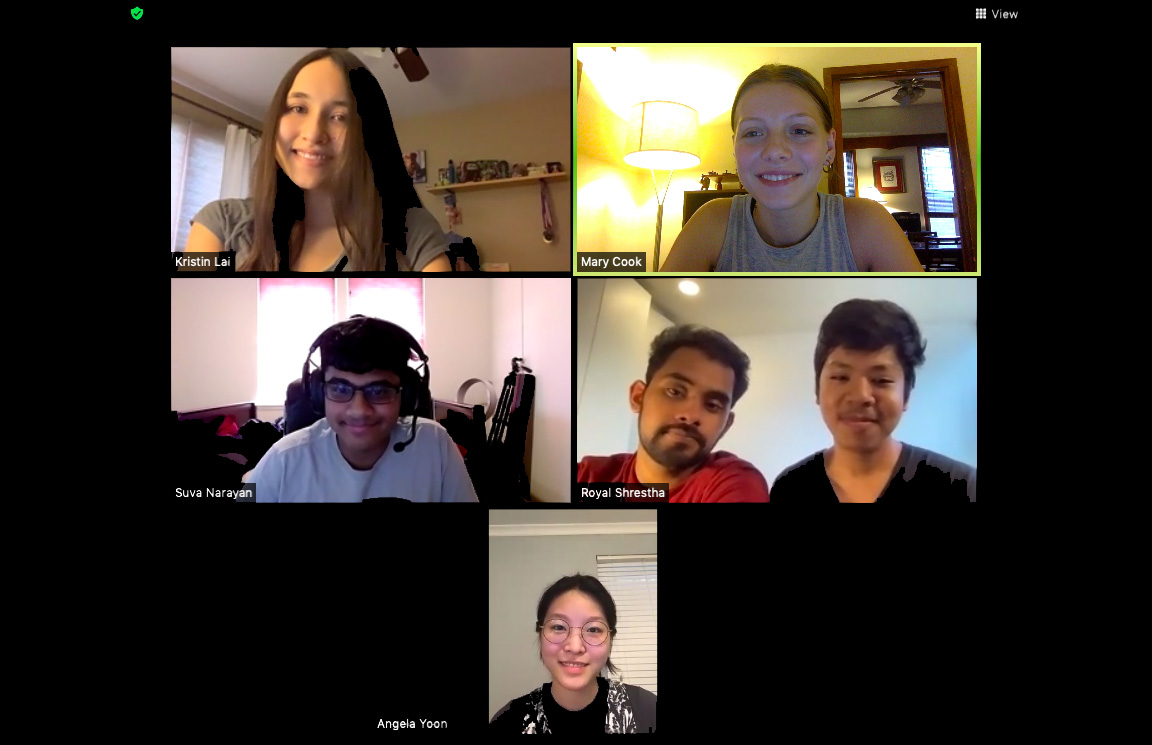iGEM 2021: Designing better enzymes to break down plastic
Polyethylene terephthalate, or PET, is a type of plastic that is widely used for packaging food and beverages, including soft drinks, juices, and water. Although PET is the most recycled plastic in the U.S., its current recycling rate is only 31%. This year’s UIUC iGEM team aims to improve that by tweaking PETase—a naturally-occurring enzyme found in Ideonella sakaiensis, a bacterium discovered in 2016 as the world’s first PET-eating bacterium.

PET is usually commercially recycled by re-melting or with the help of chemicals. Each method has disadvantages. Although incinerating PET bottles is cheaper and more efficient, it slowly releases CO2. On the other hand, the chemical treatments make PET resistant to biological degradation. Additionally, only clean PET plastic waste, without any residuals from food or drinks, can be treated by the current industrial PETase recycling methods, necessitating the use of alternative treatment procedures.
The current PETase enzyme made by I. sakaiensis cannot be used for many of the existing recycling conditions. “The majority of PET ends up at landfills. Since it is very hard to degrade PET naturally, we are looking at PETase and trying to optimize how it degrades the plastic,” said Mary Cook, a senior in bioengineering.
The team has a two-pronged approach to the problem: the computational team that will design new enzymatic sequences and the wet lab team that will create and test these new mutated proteins for degradation.
“We are using the published models that have previously looked at PETase to try to figure out which amino acid sequences contribute to better enzyme activity,” said Suva Narayan, a senior in bioengineering.
On the other hand, the wet lab team has started to test the wild-type PETase to understand the enzyme better. “Once the computational team tells us which mutations to use, we’re going to test the different forms of the enzyme to see how effective they are at degrading PET at different temperatures,” said Royal Shrestha, a junior in molecular and cellular biology.
“We’re hoping that the computationally-derived sequences will be more promising than the wild-type PETase,” Cook said. “We want to figure out which parts of the enzyme sequence are important for certain characteristics and find something that is better at degrading PET.”
The iGEM teams usually meet in the spring to develop their ideas for synthetic biology projects and they continue working on them over the summer. They then participate at the annual Giant Jamboree, an international competition, which is held in November. Teams from all over the world participate to earn gold, silver, or bronze medals and the overall winners are chosen from the gold-medal teams.
Some of the members in the 2021 team also participated in 2020, which has allowed them to get a jump-start on the project. “Last year we spent a lot of time figuring out what our project was going to be. This year, we formed our team earlier and started working in May instead of later in the summer,” Cook said. “iGEM is unique because it is completely student driven. So, it was nice to have a little extra time to figure out our direction.”
Last year, the iGEM team built a web tool to model the COVID “spike” protein as it mutates to enable the design of new drugs and vaccines. Intriguingly, their current project idea has also stemmed from the pandemic. “During the pandemic, the consumption of single-use plastic surged and we became interested in solving that problem.” said Angela Yoon, a senior in integrative biology. “It’s an extension of how COVID affects our lives.”
The team is also hoping to use their research to help the Urbana-Champaign community. “Being involved in your community is a really big part of iGEM,” Cook said. “We want to reach out to local places in Champaign to get a better idea of how plastic is recycled and how we can apply our solutions here.”
The 2021 team consists of Mary Cook; Jefrin Joseph, a junior in molecular and cellular biology; Kristin Lai, a senior in bioengineering; Suva Narayan; Royal Shrestha; and Angela Yoon. They will also be partnering with the University of Toronto and the University of Texas, Austin since the iGEM teams from those universities are also working on PET plastic. The Illinois iGEM team is sponsored by the Carl R. Woese Institute for Genomic Biology and the Center for Advanced Bioenergy and Bioproducts Innovation.
The Illinois team’s “Project apPETite” was awarded a bronze medal at the International Genetically Engineered Machine (iGEM) 2021 competition. The six-member student team worked to design better enzymes to break down widely used Polyethylene terephthalate (PET) plastics. Learn more in this two-minute video.
